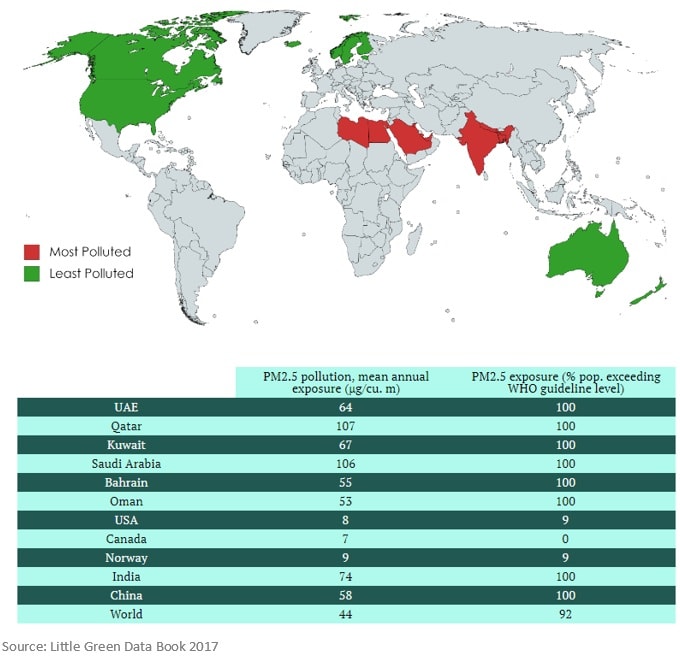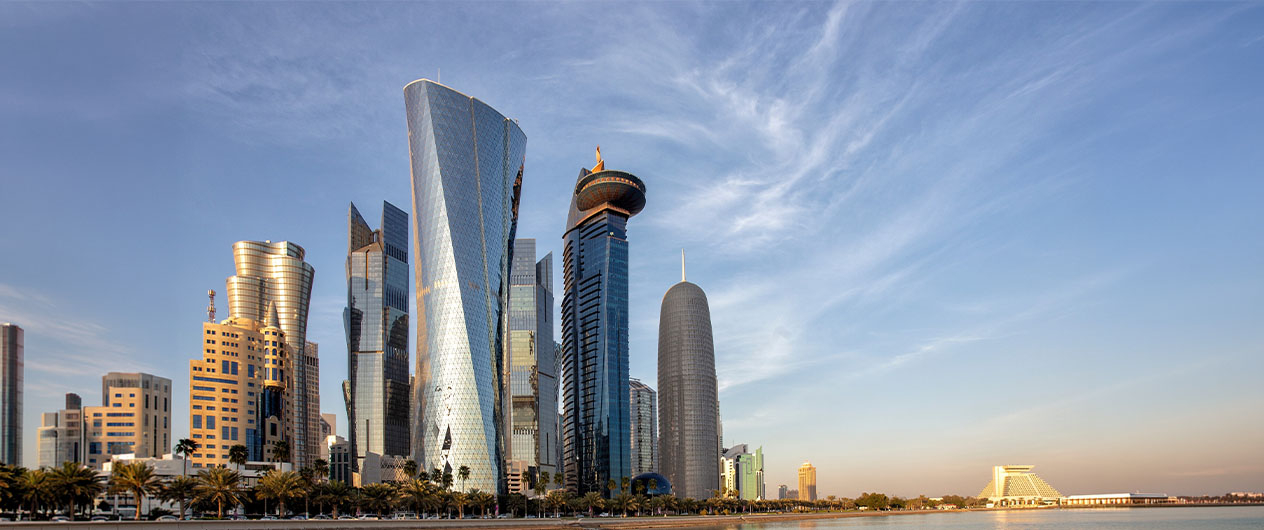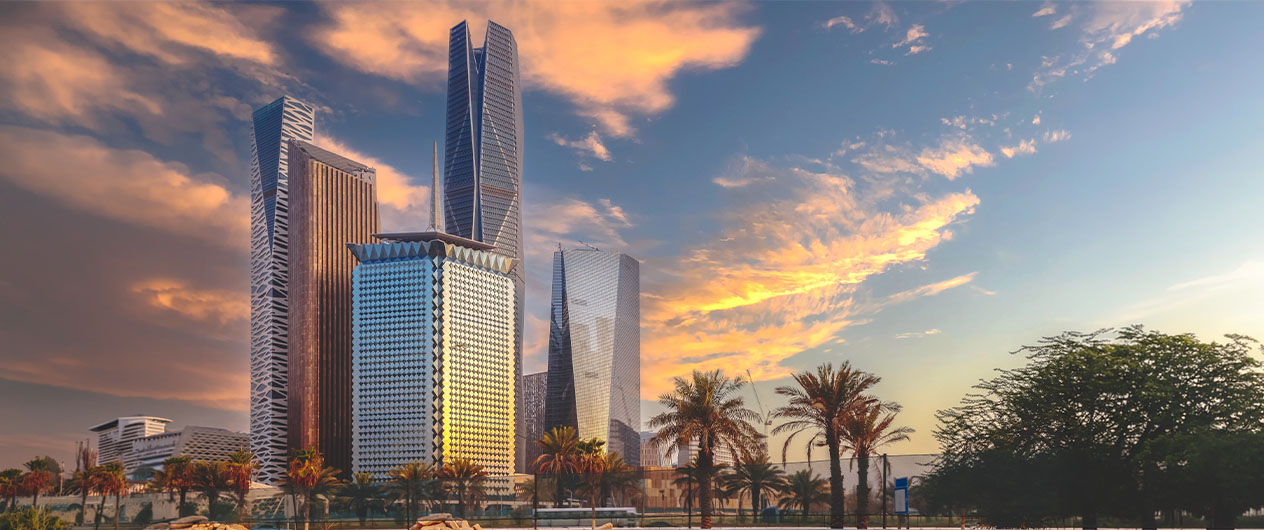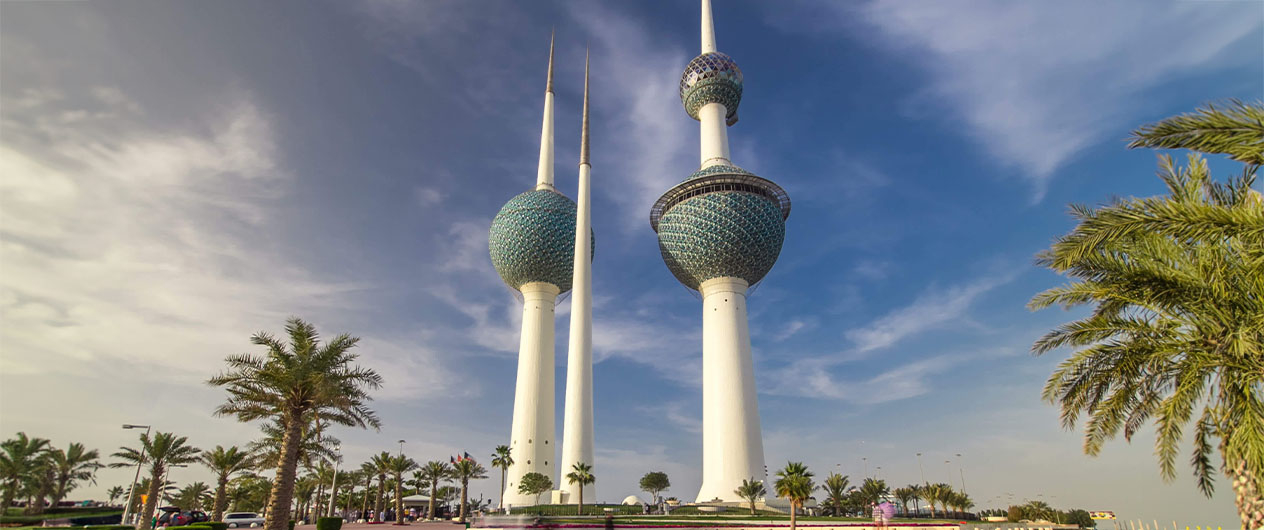Air Quality – Cause for concern
The extent of air pollution is higher than the global average in all GCC countries with Qatar and Saudi Arabia having alarming levels of PM2.5. As per a study by WHO, Saudi Arabia accounted for 4 among the top 50 cities having the highest average yearly air pollution with Riyadh and Jubail making it to the top 10. The situation is equally worse in terms of CO2 emissions as Qatar ranks 1st in the world in terms of CO2 emission per capita and contributes to 0.25% of the world’s total CO2 emissions while housing only 0.031% of the world’s population.
Oil drilling and rapid urbanization have been the primary causes for air pollution in the region and as the GCC economies are heavily dependent on income from oil, pollution control has remained a persistent challenge. Rapid infrastructure development over the last two decades have also aggravated the situation.

What can be done?
Stricter emission norms and transparency in disclosure of industrial emissions must be encouraged by policy-makers for better pollution management. Rigorous implementation is as important as setting up a regulatory framework to make sure that the industries fall in line in accordance to the required standards. Also incentives have to be provided so that industries find it cost effective to comply with environmental standards.
GCC countries are among the highest per capita consumers of water and electricity in the world. This increases the need for fuel and energy, subsequently affecting air quality. Hikes in tariff and reduction of subsidy along with creation of awareness regarding minimal energy consumption would go a long way to reduce the level of pollution.
Renewables and Electric Vehicles – The way to surge forward
Use of renewables would be a step in the right direction. It will reduce the need for oil drilling and also help reduce emissions. The potential for solar power generation is high as GCC countries have the advantage of being geographically located in a region receiving regular sunlight with solar insolation levels (measure of solar radiation energy received on a given surface area in a given time) as high as 6.5 kWh/m² per day. Costs associated with renewable energy have also come down making it a cost effective alternative to fossil fuels. All GCC nations have incorporated the use of renewable energy in their long term visions and have been taking steps towards achieving their targets. However, the commitment needs to stay in the longer term backed by necessary investments.
The Auto industry worldwide is undergoing a major change with the emergence of commercial electric vehicles, a change which could bring about massive reduction in vehicular emissions in the long run if embraced. Dubai has been aggressively promoting the usage of EV (electric vehicles) by offering incentives to users. New EV buyers will be able to charge their vehicles for free until 2019 and use free designated green parking spots across Dubai.
Dubai has also been taking measures to promote the concept of green buildings (The concept of creating sustainable structures which have minimal negative impact on the environment) by giving permits to buildings only if they are compliant to required environmental standards. 1433 green building projects have been completed in Dubai since 2010 helping UAE reach 9th rank globally for green buildings outside the US according to a report from the GBC (Green Building Council).
Outlook – Still hazy as it stands
Despite the current measures taken by the governments, air quality remains appalling with 100% of the GCC population living in areas exposed to particulate pollution higher than WHO guideline level. Such deterioration of the environment would lead to several health hazards thereby affecting the livability of the region. Although UAE has been in the forefront among GCC nations in the push towards a cleaner future, initiatives taken by its neighbors so far leave much to be desired. Most of all, the concept of sustainable development needs to be incorporated in every sector with a view towards causing minimum hazard to the environment. This can be achieved only if the regulatory authorities are proactive in their cause and efficient in their enforcement. Until then, the situation is unlikely to improve and is susceptible to further degradation.





